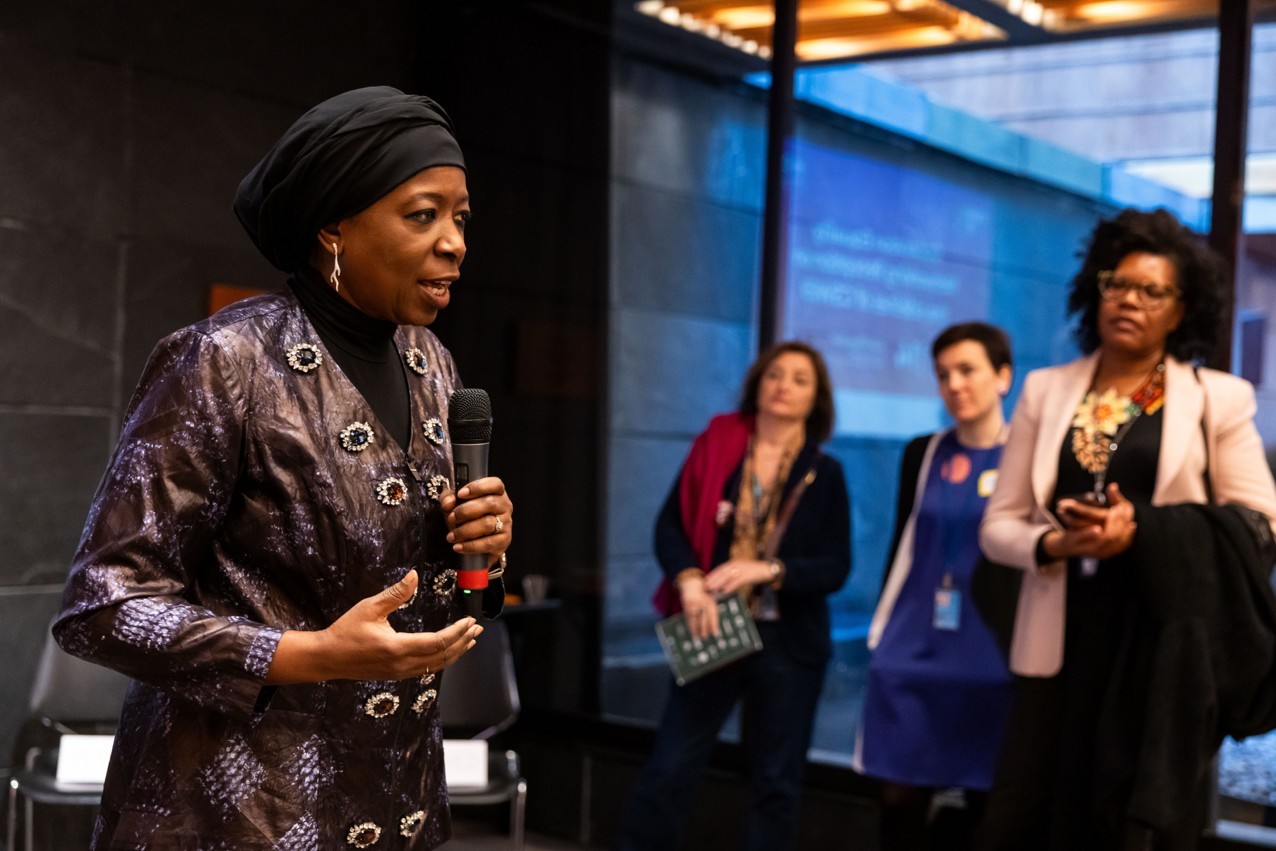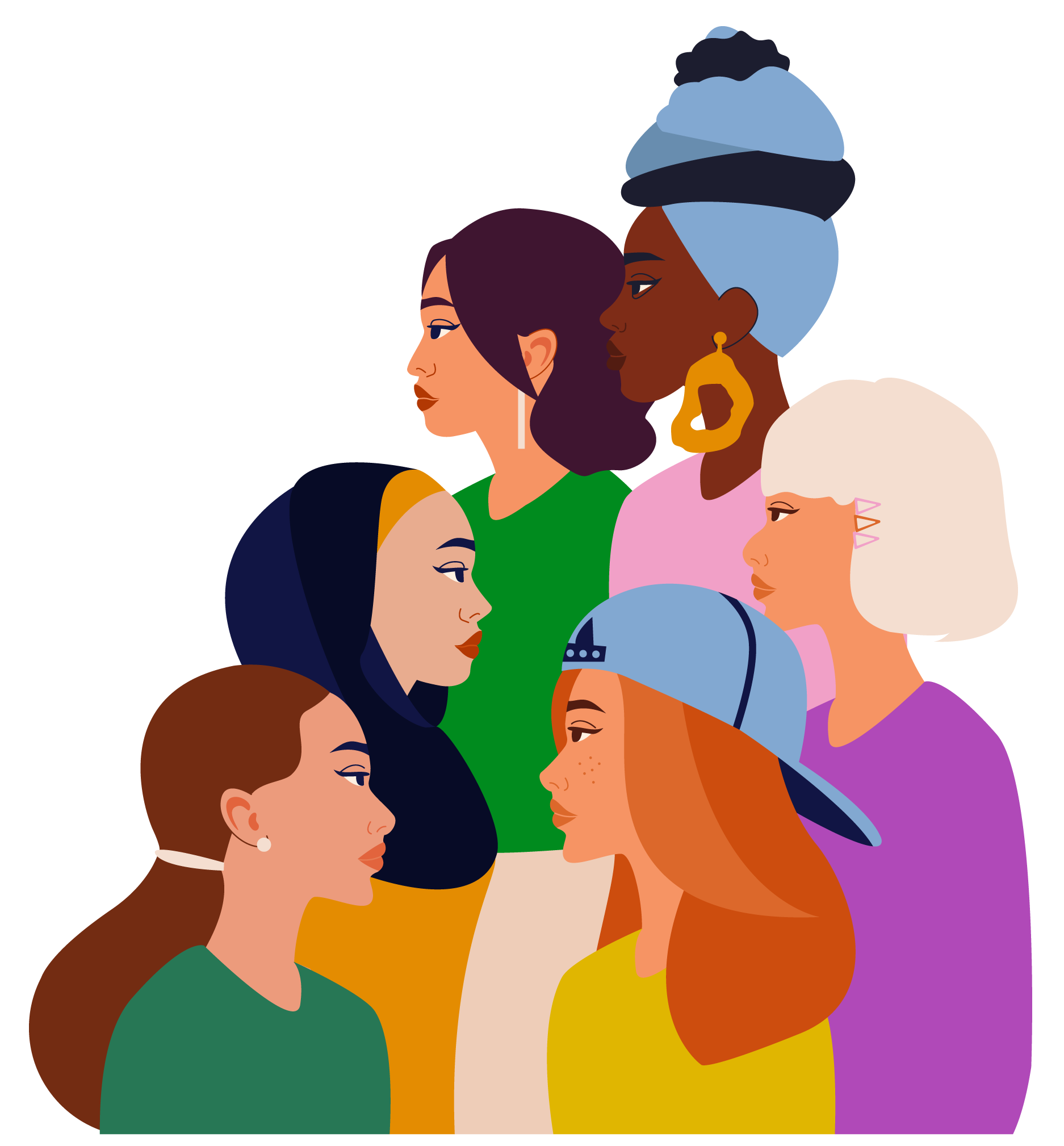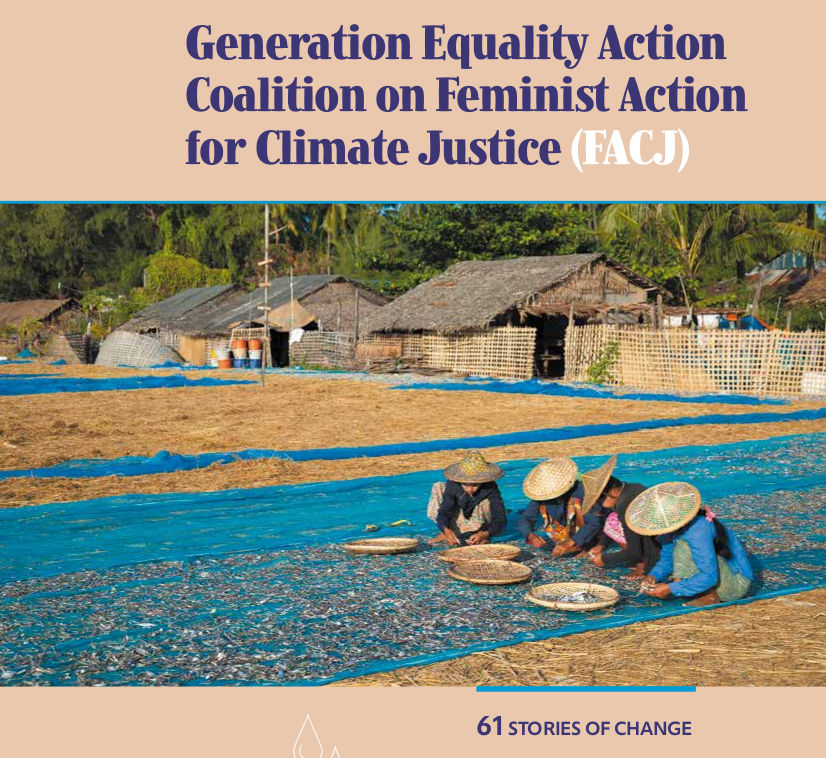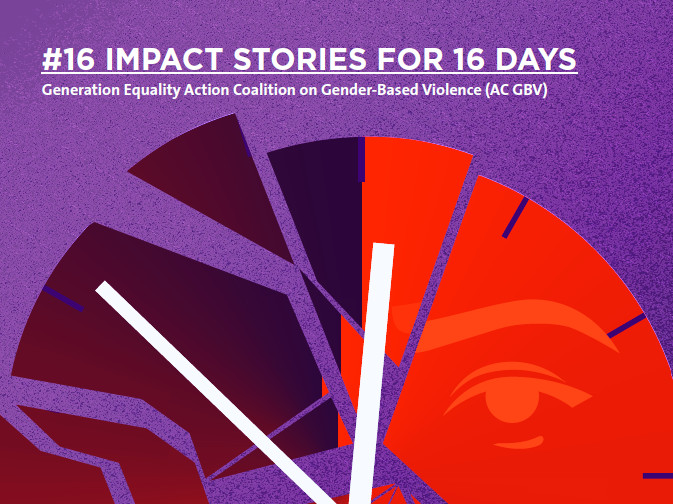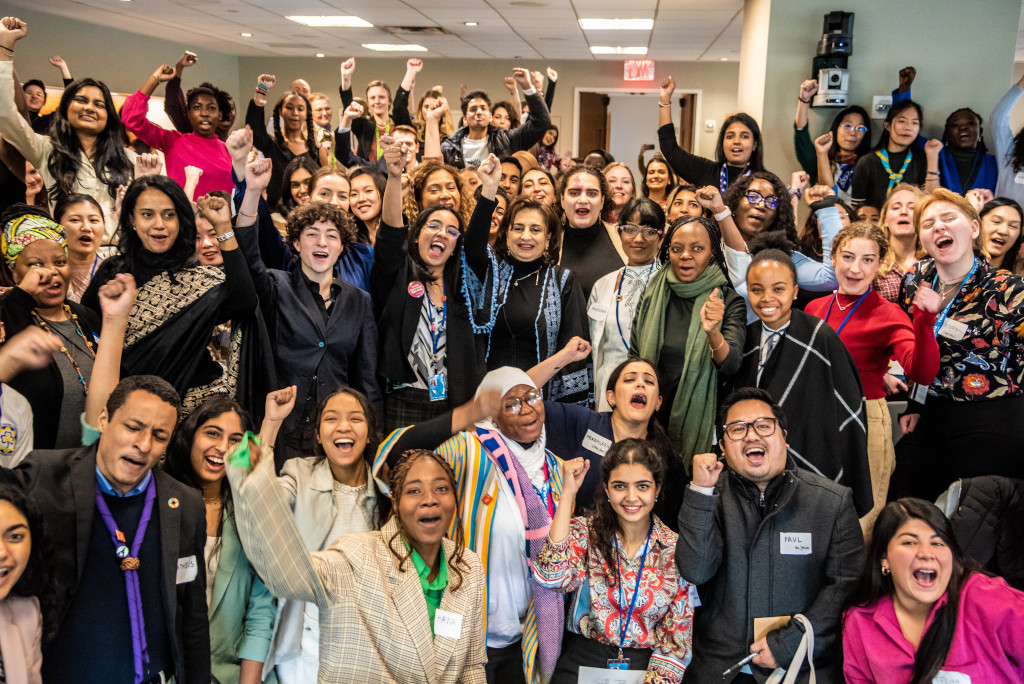As the world approaches Menstrual Hygiene Day 2025, global advocates are raising their voices to demand menstrual justice – framing it as a fundamental issue of equity, dignity, and human rights. In the lead-up to the day, a powerful cross-coalition webinar united youth leaders, grassroots activists, private sector innovators, and UN agencies to spotlight the urgent need for inclusive, sustainable, and rights-based approaches to menstrual health and hygiene (MHH). From schools without bins to crisis zones where menstruators are forgotten, the message was clear: addressing menstrual health is essential to achieving gender equality, climate resilience, and bodily autonomy for all.
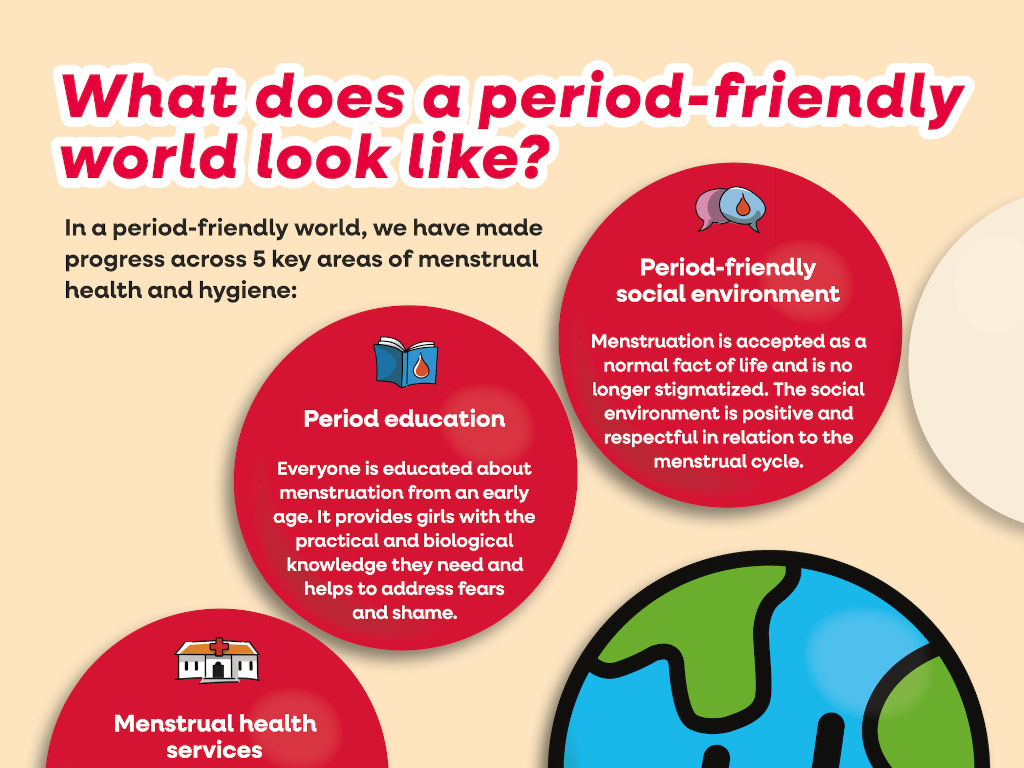
Three decades ago, the world marked historical turning points for women and girls health - through the adoption of progressive and landmark frameworks - the International Conference on Population and Development (ICPD PoA) and the Beijing Platform for Action (BPfA). Menstrual health and hygiene (MHH) is part of every woman's and girl's life - central to sexual and reproductive health and rights, bodily autonomy, economic empowerment and gender equality.
The recently adopted Sixty-ninth Political Declaration of the Commission Status of Women, calls for “Promoting, respecting and protecting the right to the enjoyment of the highest attainable standard of physical and mental health for all women and girls, throughout their life course and without distinction of any kind, towards the achievement of universal health coverage, including safe, available, affordable, accessible, quality and inclusive healthcare services, as well as maternal and neonatal health, menstrual health and hygiene management and all communicable and noncommunicable diseases”.
Every month, more than two billion people around the world menstruate. Yet for millions, menstruation is still accompanied by systemic barriers—from harmful social norms and stigma to inadequate access to menstrual products. Globally, around 2 out of 5 schools (39%) provide menstrual health education (33% data coverage) and 1 in 3 schools (31%) have bins for menstrual waste in girls’ toilets (32% data coverage). These challenges are intensified during humanitarian crises and climate emergencies, where resources are scarce and basic needs for dignity and health are often unmet. Menstrual health and hygiene (MHH) is a critical component of bodily autonomy, sexual and reproductive health and rights, access to education and economic empowerment.
WASH United a commitment maker, organized an activation webinar on behalf of the Generation Equality Action Coalition on Bodily Autonomy and SRHR, Feminist Action for Climate Justice and Economic Justice and Rights bringing together all vested stakeholders together ahead of MH Day which takes place every year on May 28 and has grown over the past 10 years into a movement that unites under a joint mission: Together for a #PeriodFriendlyWorld. The webinar was titled, “Generation Equality cross-coalition showcase & activation webinar: Standing up for menstrual health and hygiene as part of Beijing+30”.
As May 28 approaches, global voices were showcased during this cross-coalition activation webinar to amplify a vital message: menstrual health is not just about hygiene—it’s about equity, dignity, and justice. The session brought together youth leaders, grassroots organizers, private sector innovators, and UN agencies.
Ina Jurga, WASH United reflected on the growing global momentum behind MH Day. Since its inception in 2014, MH Day has evolved from a niche awareness initiative to a global campaign that reached nearly 1 billion people in 2024 with positive messages, which tackle stigma. “It’s no longer just a theme. It’s our mission—to build a world where no one is held back because they menstruate. Not at home. Not at school. Not at work. Not in emergencies.”
Two powerful youth activists delivered powerful calls to action during the webinar. Youth activist, Teodora Risteska Daskalovski, 18, from North Macedonia, who spoke about the cost of menstrual poverty. “As a young woman who has witnessed the impact of menstrual poverty firsthand, I cannot stay silent, in rural parts of North Macedonia, 90% of students miss up to five days of school each month due to menstruation, while 15% of adolescent girls lack access to menstrual products”. This intersection of crisis and menstruation was echoed by İlayda Eskitaşçıoğlu, a menstrual justice activist and founder of Turkey’s We Need to Talk Association and also a Generation Equality Youth Leader. She described how the devastating earthquake in Turkey and Syria exposed glaring gaps in crisis response. “Menstrual needs of millions were overlooked—as if bleeding could wait,” she said. “It’s not about the pad. It’s about the silence, the burden, the shame. A basic bodily function becomes a crisis in a crisis.” Her non-governmental organization (NGO) has reached over 1.8 million people across the Middle East through workshops, peer-led education, and menstrual care kits, working with refugee and minority communities.
Private sector commitment makers such as Real Relief offered insights into innovative sustainable practice. Trine Angeline Sig, founder of Denmark-based Real Relief, introduced SafePad, a reusable sanitary pad made from regenerated plastic waste. The product is now being locally produced in 10 countries, including Afghanistan, where 135 women are employed in production, and Tanzania, which has the capacity to produce 50,000 pads a day. “We are tackling period poverty, climate justice, and economic justice all at once,” she said. Her data underscored the urgency: 12.3 billion pads are discarded into unmanaged landfills annually, and if trends continue, 29 million tons of plastic waste could enter oceans by 2040.
In India, Aashraya Seth, Fulbright scholar, founder of the NGO Happy Periods, a youth leader in Generation Equality and a HeforShe champion, described a multi-pronged approach to menstrual equity. His organization has pioneered biodegradable pad vending machines, $1 sustainable cloth pads, and Mahawari Mitra, a menstrual education curriculum now read by over 400,000 young people. “Menstrual equity is inseparable from climate, justice, human rights, and gender equality,” he said. For girls living through monsoons, droughts, or heatwaves, he explained, managing menstruation becomes disproportionately difficult.
In East Africa, Lilian Bagala of the Irise Institute in Uganda shared research from the newly launched Scarlet Murmurations report, which revealed that 65–70% of girls across several countries drop out or regularly miss school due to menstruation. Through the Menstrual Justice Academy and the Period Equality Network—which has grown from 30 to 160 grassroots organizations in just four years—Irise is strengthening community-driven approaches and influencing national policy.
Marije Broekhuijsen from UNICEF offered a sobering reminder: “Menstruation is not just about the days that you bleed, it is the entire cycle”. She emphasized the cross-cutting relevance of menstrual health across the Beijing Platform for Action and the Sustainable Development Goals, and urged stakeholders to share mobilize ahead of the Human Rights Council next year which will have a focus on MHH. Marije further added, “We are not tracking this issue well enough. The data is sparse, and the accountability is weak,” she noted, calling for menstrual health to be fully integrated into humanitarian and development agendas.
As the world gears up for MH Day 2025, speakers from across sectors rallied for a #PeriodFriendlyWorld
-
Recognize menstrual justice as foundational to SRHR, education, climate resilience, economic empowerment, and peace and security.
-
Mobilize all sectors—governments, private sector, civil society, and youth—to end period poverty.
-
Address the full menstrual cycle, not just the days of bleeding, in policies and programmes.
-
Integrate MHH into crisis response—because periods don’t stop in times of climate disasters or conflict.
-
Strengthen menstrual health data—invest in building a body of evidence to inform policy and action.
-
Scale up sustainable, innovative solutions that are affordable, inclusive, and environmentally friendly.Back to Stories
-
Advance MHH as a core part of Beijing+30 commitments and broader gender equality efforts.
*Note that all data reflected is presented by the authors and represent the authors knowledge and views only.
